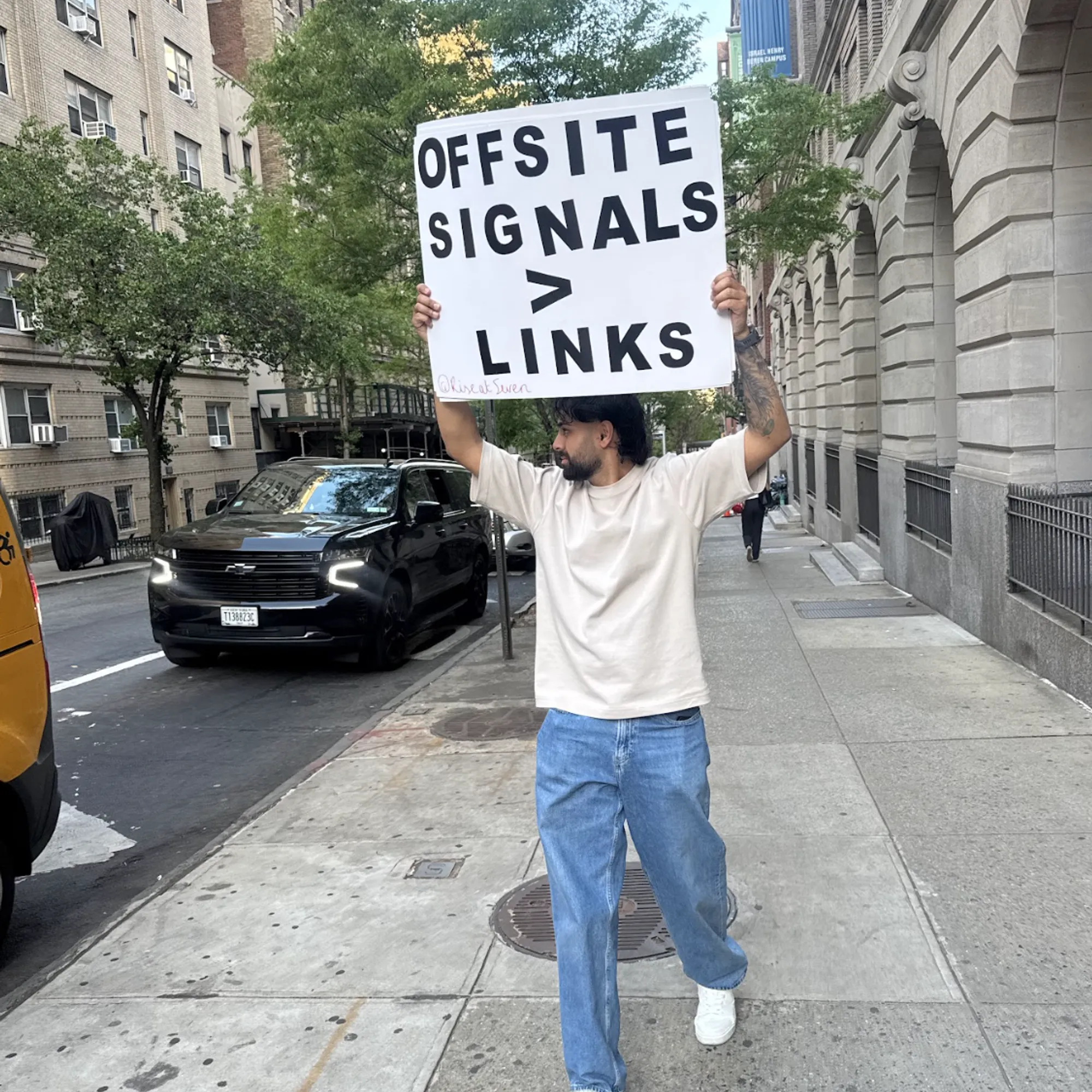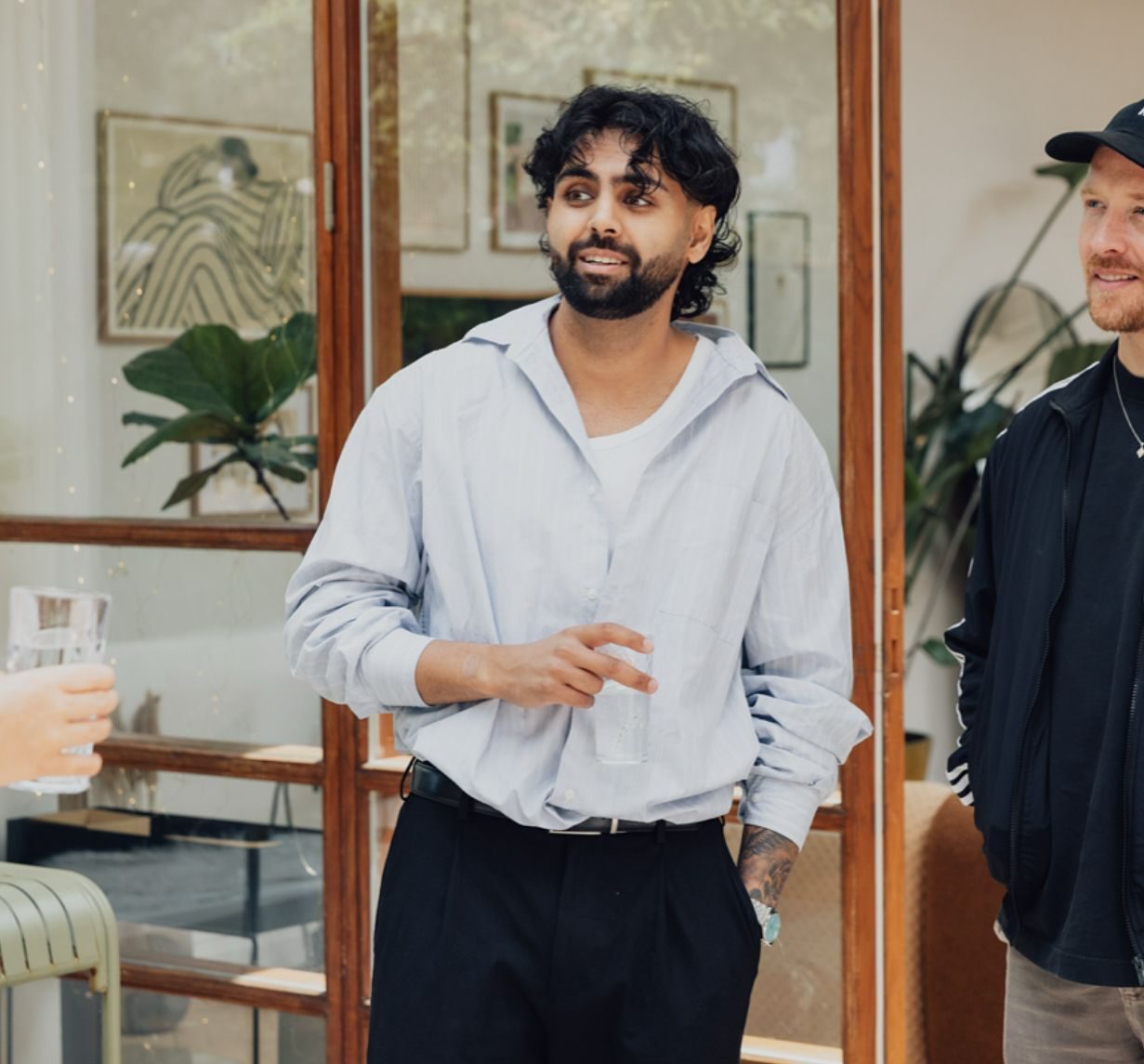It's always been my opinion that "we (users) aren't chasing Google, Google is in fact chasing users"
And the latest Google I/O announcement of a new search generative experience (SGE) proves that we are looking at a new future where Google is really putting the user first.
The changes we've been shown are about to have the biggest impact on the SEO industry, by far. Whilst we have all been figuring out the latest chat GPT changes, a new world for SEO has hit us too and i'm here for it.
This announcement needs some clarity, so I have pulled together 5 key things you should know and act on in response to the new Google SGE:
Summary in 30 seconds:
- The Google SERP is split into 3 new features: AI Snapshot, non-AI results driven by experience, and Perspectives
- Signals that might become more important: image and thumbnail optimisation, brand combination searches, links/mentions in authority press, reviews, content created by other peoples recommendations, opinion content
- Google could be stealing informational, FAQ content and answers - so SEOs should prioritise unique experiences, opinion and data.
- SEO's need to learn new skills combining creative and technical SEO
- Guide content will still be important for eccommerce
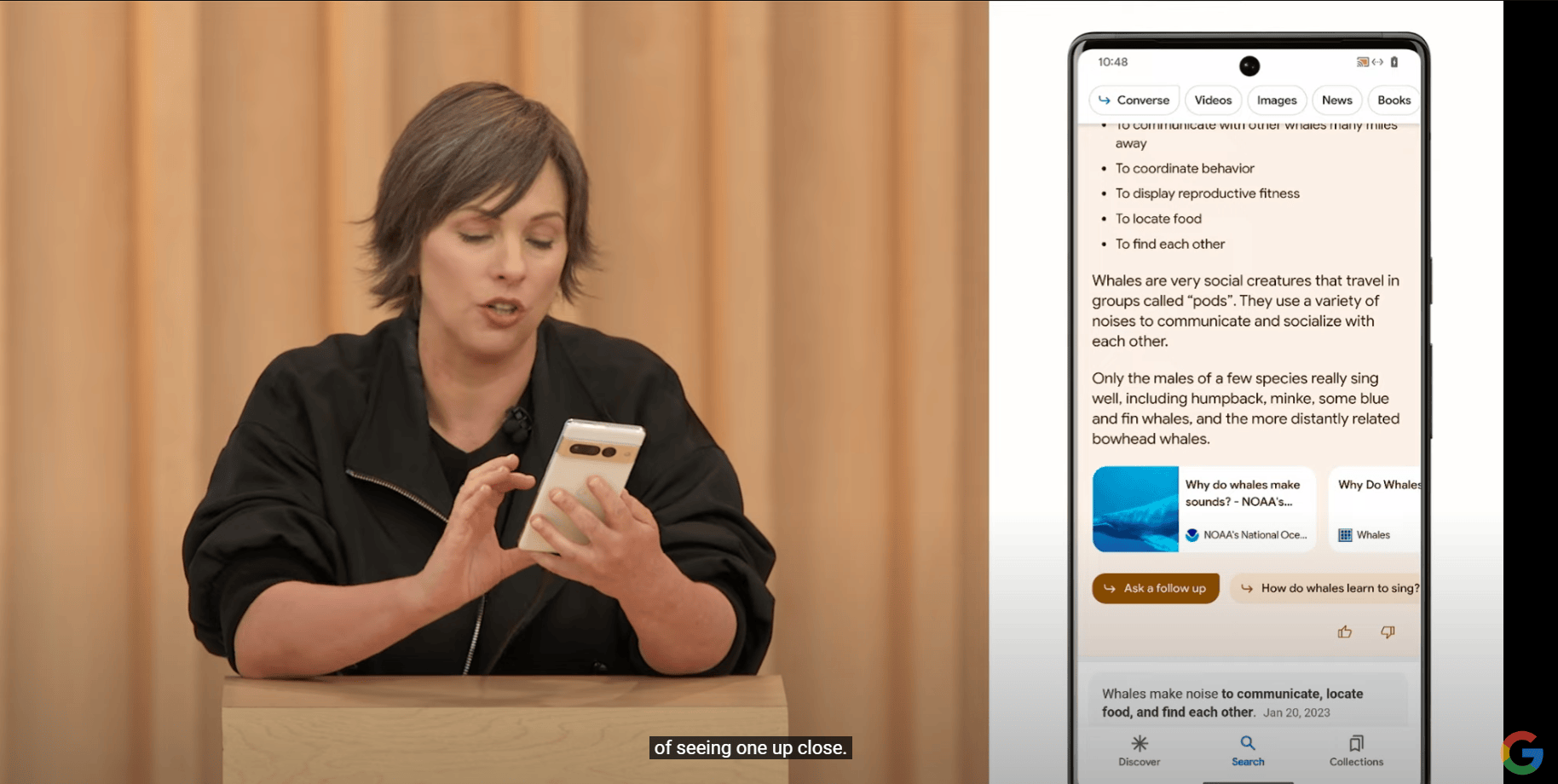
1. The new Google SERP (SGE) will be split into 3 parts
- AI
- Others recommendations/experience
- Perspectives
The 3 new features of the SGE SERP is very clearly prioritising others recommendations, opinions and advice over brands. We've turned to a world where word of mouth can have a real role to play in search advertising/organic results.
It seems well structured to follow EEAT, with the AI part focused on conversational search with the ability to ask questions and go back and forth with the tech to get to an answer. It will be limited to high authority, expertise results pulling things through from the media to back up claims and build trust.
However that part will likely get most of the search traffic.
Below AI, we will see first-hand experience and recommendations coming through - most likely content created by other people again (not brands). It will likely take content that shows first hand experience of a product, service or location and most probably favour content created by experts, with already off-site signals of trust and authority around that topic.
And after that, will be perspectives. Pulling through other peoples perspectives on that topic, what people are saying on Twitter, TikTok about it, reviews and more
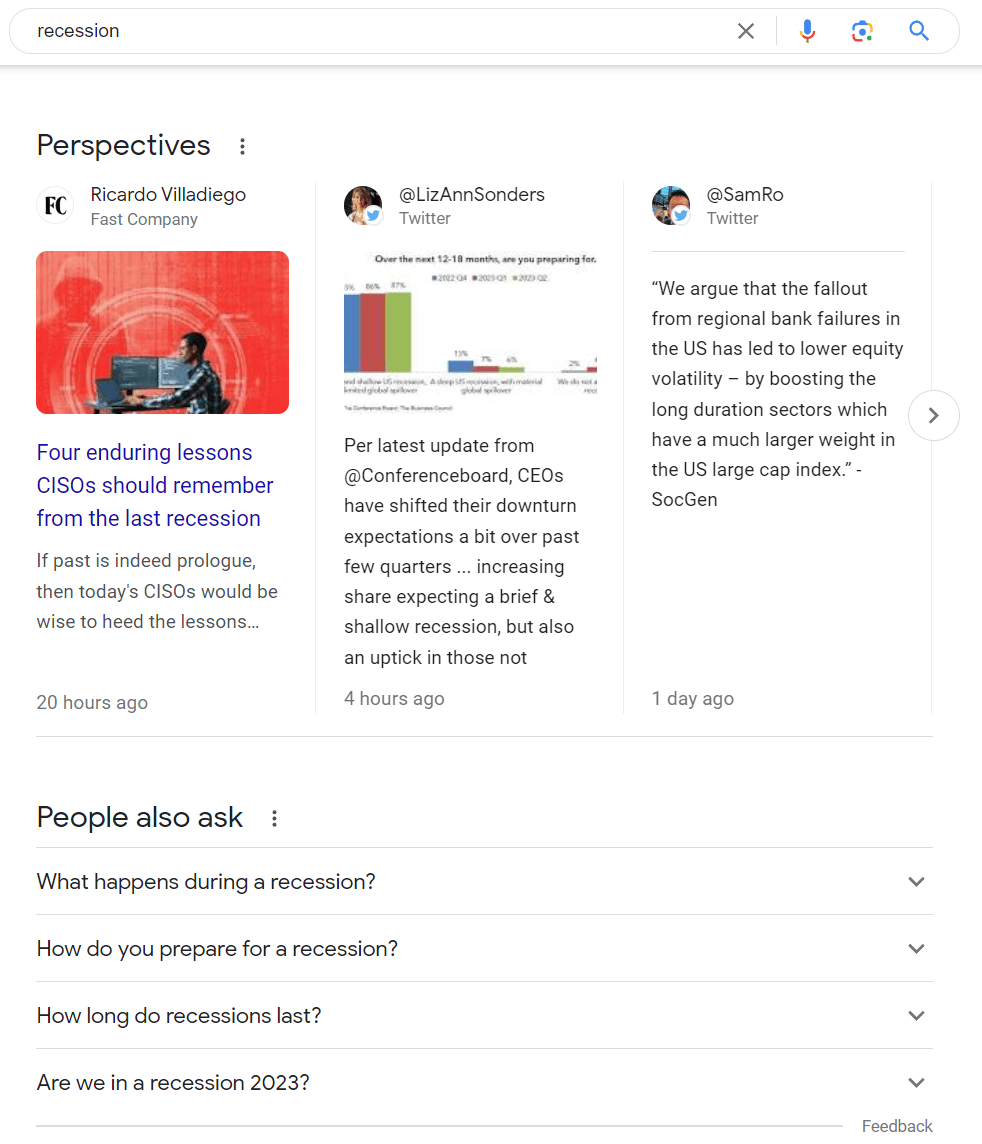
2. Image thumbnail optimisation will be a huge feature
The thumbnail of your images will play an even bigger part in the search journey now, with Google most likely pulling through strong and unique imagery to its SGE. Images will need to stand out as a way to get attention and clicks and likely something you should A/B test. SEO's need to find new ways to make thumbnails stand out in all parts of the SERP now which channels like YouTube and Pinterest have been doing for years.
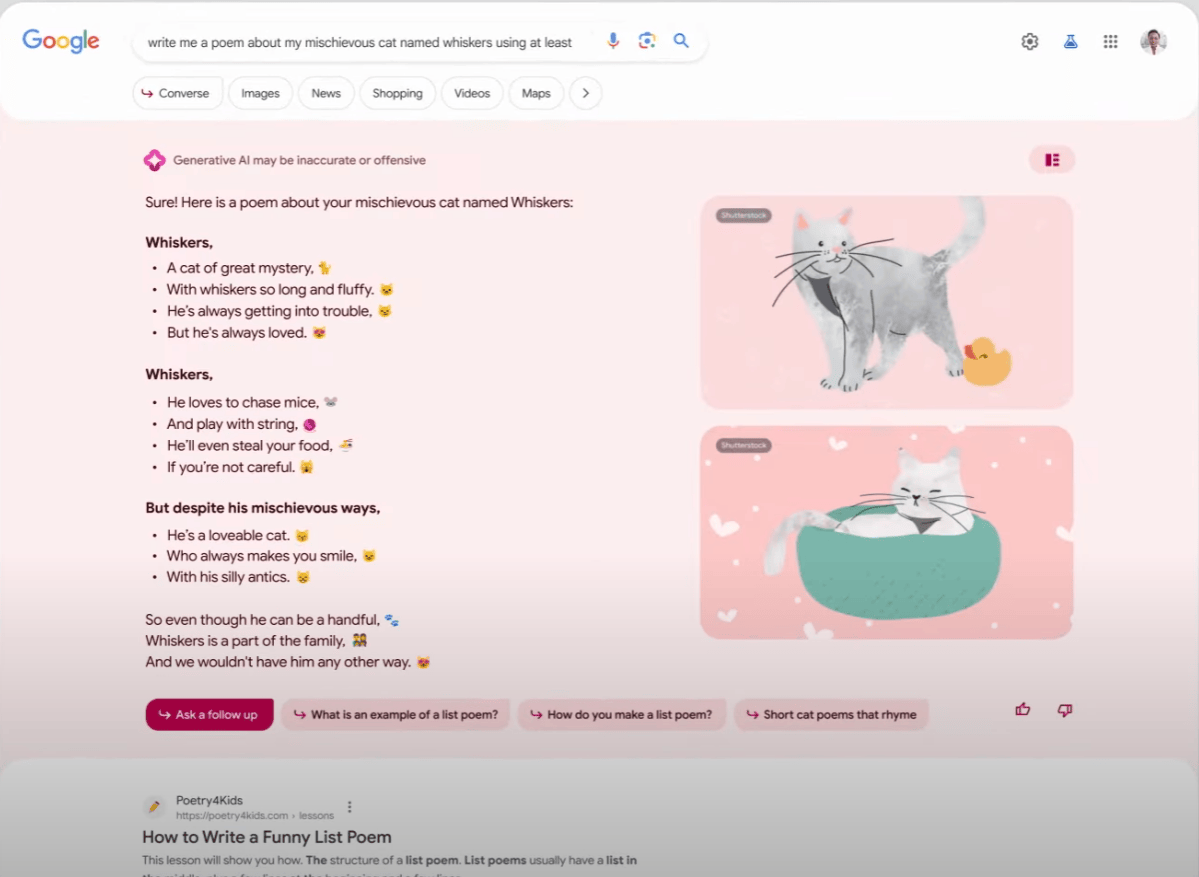
3. Websites will receive less traffic, but more qualified customers - Google forcing a one answer search journey
Users want a faster answer to their search queries than ever before. I talked about this in my guide to TikTok SEO, how users are going to new channels to search because Google is no longer serving the user fast enough.
Well Googles new AI search feature is looking to do more with one single search. Moving forward, Google wants to decrease the number of queries needed to get a good answer to ideally one. This means we (websites) could see less traffic, (because more search queries means more opportunities to capture traffic or attention), but Googles AI could be qualifying it better for us - meaning more higher value converted traffic.
4. Google will steal informational FAQ searches, brands need to prioritise opinion, experience and data content

Google is moving toward a first hand experience SERP with content created by other people over brands. For brands to still win in this space, content created by experts, authors and even customers will have a better chance of ranking and converting.
We have seen EEAT already push us towards an expertise driven future, with brands rolling out authors creating and fact checking content to give signals of trust and authority , and those that have done this will reap the rewards.
Shared media has become more important than ever, working with creators to help create your guides, onsite content, offsite video content for channels like TikTok, and YouTube will be a big move brands will need to make to succeed in this new SGE world.
Thats why we launched The Rise Network, helping connect brands with creators, experts and thought leaders in their space to create content by other people for your brand.
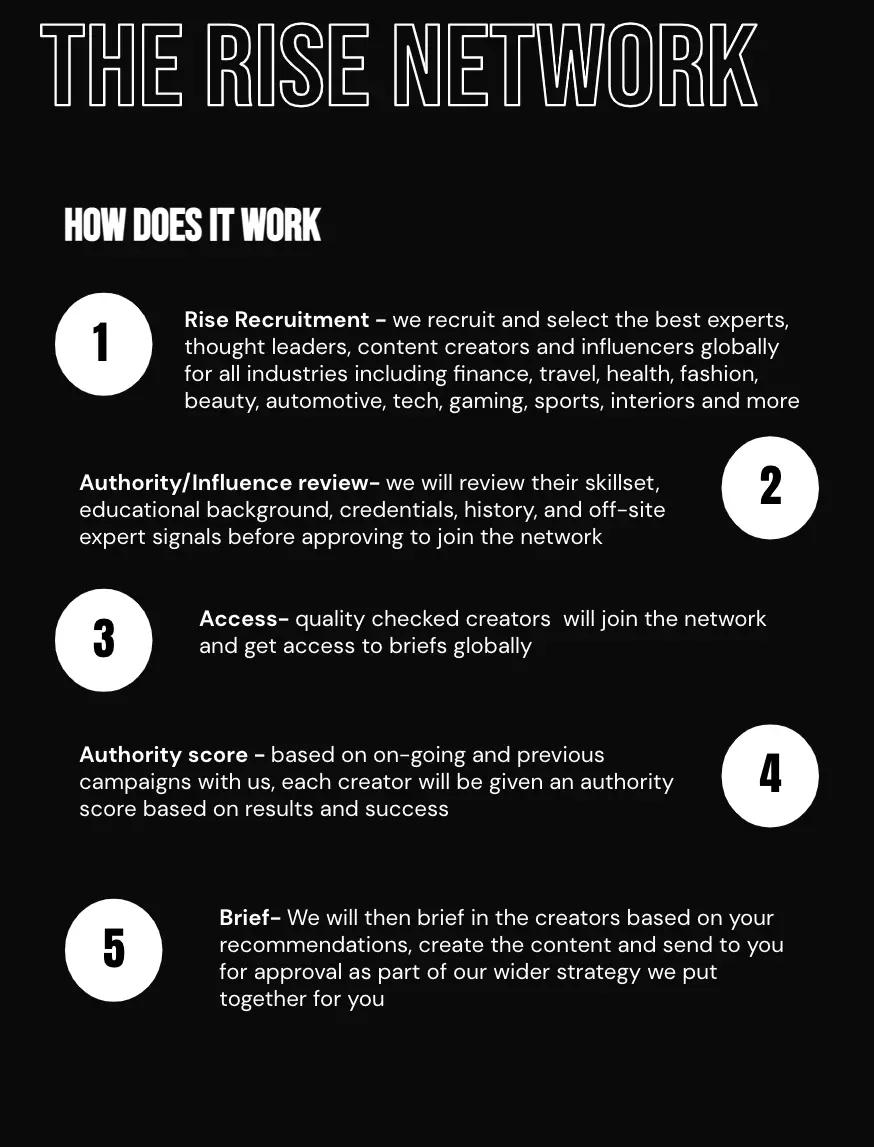
5. Trust signals by the media will be favoured by Google SGE
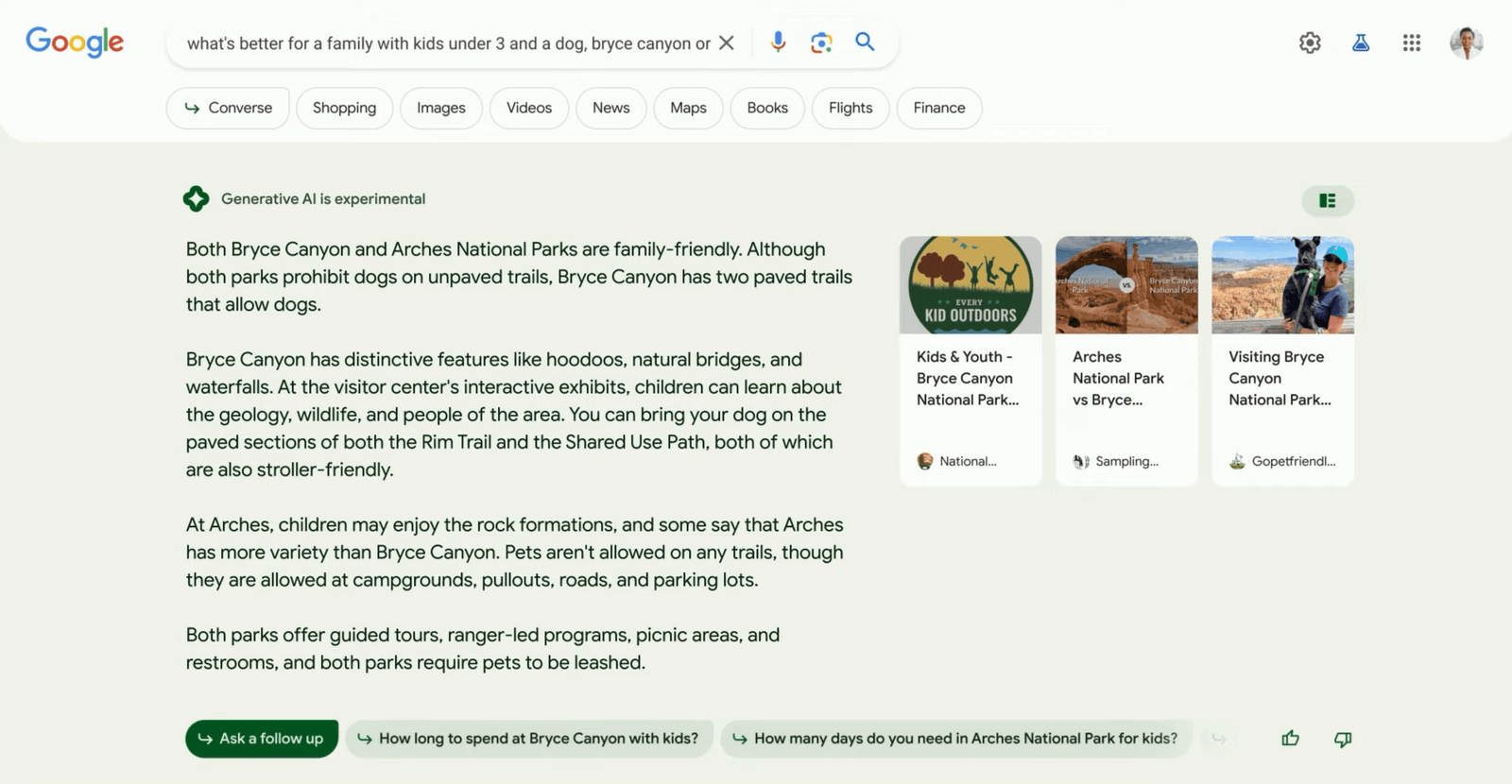
For AI to accurately answer a search query, it pulls information that already exists from the web. However, for it to pull it from the right information, most trusted source - Google is relying more heavily on media coverage, mentions and links.
PR for us, is and always has been a signal of trust to users. You see an ad for a new health drink, you then see it featured in the media as one of the top drinks this year - you are more likely to buy. Media and PR is going to play a huge role in the new search generative experience as AI and brands will rely on other peoples recommendations.
To get top tier media placements and links for your brand and products, contact our Digital PR team

Read more about our new content creator influencer agency service

CEO & Founder of Rise at Seven, and my job is to be out in the market and see which way the wind is blowing in the next 1, 2, 5 or 10 years time and bring that home to my team and clients. I lead the vision of the agency across the UK & US.



